|
Before any major event, we need to prepare. A student needs to study for an exam. A runner must practice before running a marathon. A bride and groom plan out the intricate details of a wedding day. A mother and father decorate the nursery before their baby is born. As you anticipate the festivities of World Youth Day (WYD) 2019, you must also prepare yourselves spiritually for the event that is about to take place. You need to get yourself into the right mindset in order to be open and to fully experience all that WYD 2019 will have to offer, whether you are traveling to Panama, attending a stateside event, or participating digitally. We are preparing to: Encounter, Accompany, Live Community, and Send! Encounter There are many ways in which leaders and pilgrims alike will experience the act of encounter when they are participating in a World Youth Day celebration. The most important encounter that leaders or pilgrims will experience is the encounter with Jesus Christ. We are able to encounter Jesus Christ through the Sacraments, through scripture and prayer, through service, and through our relationships with others. The WYD experience provides for ample opportunities for the encounter with Jesus Christ particularly through Masses, catechesis sessions, and through building and developing relationships with your fellow pilgrims and leaders. Accompany As a pilgrim, you will need to accompany your fellow pilgrims during this journey. Be there to support and encourage each other on the road. The act of accompanying furthermore requires a pilgrim leader to maintain a delicate balance of not only providing support and encouragement, but also allowing your pilgrims to encounter Jesus Christ in their own way. You need to be there to support your pilgrims, but you also need to let them figure things out themselves. But you are not doing this alone. As a leader, you are accompanied by your pilgrims, your parish, your diocese, your community, your family, all of those also participating in WYD2019, and the Church as a whole. For leaders and pilgrims alike, one important thought to keep in mind about the act of accompanying is that you need to meet people where they are. You cannot expect anyone to be exactly where you are on the journey due to everyone’s different life stories and challenges. Pray for an openness to support those around you in the way they need best. Your accompaniment can lead others into deeper life in Christ in and through the community of faith, the Church. Live Community Nothing that we do as Catholics is done simply alone. We are in relationship with God, the communion of the Most Holy Trinity. We are part of the community of faith that we call the Church. The point of common bond with one another no matter where one is from at WYD2019 events is rooted in this community. We move beyond simply ourselves and into deeper communion with the global Church. “Fellowship and communion with one another in the community of faith is also a reflection of the Trinity” (Living as Missionary Disciples: A Resource for Evangelization, 16). You as leaders and pilgrims need to live community deeply during the time of WYD2019. It is not simply a trip, but an opportunity to more fully encounter Christ in the community of faith. While we are always rooted in community, God also sends us forth on mission to a world that needs our witness of the love and mercy of Christ, especially after WYD2019. Send World Youth Day 2019 isn’t over on January 27, 2019. It continues on through your experiences and your enthusiasm long after your flight has landed back from Panama or you have returned home from your local stateside event. You must share your stories with your friends and those in your parish to enliven them with the gift of the Holy Spirit that you received at your event. You must continue on the journey as a missionary disciple. As Pope Francis tells us in Evangelii Gaudium, “Every Christian is a missionary to the extent that he or she has encountered the love of God in Jesus Christ: we no longer say that we are ‘disciples’ or ‘missionaries’, but rather that we are always ‘missionary disciples’” (120). Once we experience the great love of Jesus Christ, we must go forth and share that good news with those around us. We are inspired by the example of Pope Francis as well as the patron saints of World Youth Day to do so. We invite you to continue to prepare for this journey on which you are about to embark. Take a look at the USCCB’s World Youth Day page and the Catholic Apostolate Center’s World Youth Day Portal. Read through the guides for stateside pilgrimage leaders and for international pilgrimage leaders for more about Encounter, Accompany, Live Community, and Send.
0 Comments
Evangelization is a timeless vocation for all Christians. In our modern world, secularism surrounds us and sometimes it feels as though our Church can barely get in a word. Because of this, the current Synod on Young People, the Faith, and Vocational Discernment could not have come at a more needed time. Isaiah 6:8 says, “Then I heard the voice of the Lord saying, ‘Whom shall I send? Who will go for us?’” Isaiah responds, “Here I am…send me!” As the youth of the Catholic Church, we are the present and future of the Church. We are called to exclaim “Send me!” and to spread the Good News of our Lord and Savior, Jesus Christ, yesterday, today, and always! However, it would be foolish if we thought that every young person innately felt and understood this call. The secular world has had an impact on my faith, beginning in my own home. Not every member of my family is a practicing Catholic, which has given my mother and me the opportunity to evangelize in our own house. A prime example of this is praying before meals. I was taught to pray before meals in high school and I continue to do so in college. When I came home for the first time during my first year of college, I struggled to pray before meals because I feared someone noticing me or judging me. Eventually, God gave me the strength to begin to share this prayer with my family and now it is a tradition that we have established together. When he addressed young people at a meeting in the beginning of October (which I attended), Pope Francis said, “Make your way. Be young on the move, looking at the horizons, not the mirror. Always looking forward, on the way, and not sitting on the couch.” Our Holy Father reminds us in these words that our time is now to be consistent in our faith, live the Beatitudes, and serve one another in an effort to help each other grow. “How can I do this?” you might ask. As Pope Francis said, the Synod Fathers will—and have already begun—to answer you. In the synodal document Instrumentum Laboris under the section titled Beyond Secularization, the Synod Fathers speak about the changing view of religion in the secular world. Quoting a Bishops’ Conference, the document states, “Many young people declare that they are looking for the meaning of life, pursuing ideals, searching for their own personal spirituality and faith, but they rarely turn to the Church.” Recognizing that every young person’s path towards the Church is different, the Synod Fathers propose that we focus on the “changed attitude towards religion,” moving away from a “liquid” form of faith to a more concrete belief. Pope Francis uses the same metaphor in his response to the young people at the Synod rally I attended. He said, “Every road you make, to be reliable, must be concrete.” He continues, reminding us that “concreteness is the guarantee to move forward.” Every day, we have concrete encounters with our surrounding world. How can we as Catholics take our faith and make it concrete to those around us? This call from Pope Francis reminded me that my everyday experience of studying in Rome (only a short walk from the Vatican) can be used in my own acts of daily evangelization, especially when I return to the United States. Sharing a concrete experience is “making a gift of oneself and participating in the proclamation of the Good News,” as the Preparatory Document for the Synod states. We, as young people, are the present and future of the Church. She needs us to go out and make a difference. The salvation offered by Christ enables us to rejoice in this world, and the best way to do that is to spread His glory. Be concrete in your faith and you shall “renew the face of the earth.” For more resources on the ongoing Synod, please click here. To learn what it means to be a missionary disciple, please click here. This year, the theme for Catechetical Sunday (September 16th) is “Enlisting Witnesses for Jesus Christ.” This day is a reminder that all of the baptized play a role in the mission of sharing Christ with others, whether that be through formal or informal ministry. This mission seems pressing today. In Bishop Robert Barron’s 2018 message for Catechetical Sunday, he says we are losing baptized Catholics at an alarming rate. In a Pew Research report, we see that Americans who identify as atheists or agnostics make up about 23% of the U.S. adult population. This group of religiously unaffiliated individuals, or “nones,” is mostly concentrated among young adults, and the median age of unaffiliated adults continues to get younger. Of this population, those who describe themselves as agnostic or “nothing in particular” cite their top reason for not affiliating with a religion is that they question a lot of religious teachings. Having questions is actually an essential part of learning about and understanding the Catholic faith; only when we question can we begin to move beyond a lack of understanding and come to learn the truth of the Gospel. God desires for us to use our intelligence to come to know him before acting upon our faith. The majority of young adults and “nones” find value in meaningful relationships over institutionalism and in authenticity over authority (Halbach). This shows us that the Church can engage the “nones” by forming relationships in order to accompany them along the journey of life. In the mission to bring Christ to others, we serve as authentic witnesses to the Good News of the Gospel through our lives. The Church needs the active participation of the laity to conduct outreach efforts in the everyday moments of our lives, both inside and outside of the Church. We were created to be social beings who can form relationships with others that will lead them to Christ and to the Church. Much of this relationship building happens organically in our communities and parishes. For example, a couple of weeks ago, my parish young adult group heard that the grandmother of one of our new members had passed away. After hearing this news, we wrote and signed a sympathy card to mail her. By this small act of love for our fellow sister in Christ, we were able to show our genuine care for her and our desire to welcome her back to church after her travels for the funeral. As missionary disciples, we know that there is no one “right” path to building these relationships and caring about those around us. This allows us to share our innate gifts creatively with others in order to build authentic relationships. Furthermore, sharing our own faith stories of personal encounters with Christ helps us to accompany others on their faith journeys as well. We must show others that we love them through our actions rather than our words. Christ enlists us as his witnesses. This Catechetical Sunday, how can you respond to his call? Questions for Reflection: Are we open to questions about our Catholic faith in helping ourselves and others come to know God? Are we preparing ourselves to be able to answer questions from others about the faith in a rational manner? What are some ways you can begin to build authentic relationships with others in your community or parish? How are you building personal relationships with others in context of your faith journey? To learn more about living as missionary disciples, click here. The call to evangelize is at the heart of our Christian faith. We are evangelizers at our core; it makes up our very identity. And yet, if I were to ask most people sitting in the church pews at Mass if they are evangelists, they would probably shake their heads and identify themselves in other terms: vocation, occupation, role in the family, country of origin. A professor of mine in graduate school put it starkly when he said most of the laity are experiencing an “identity crisis.” We do not know, or have forgotten, who we are as members of the Body of Christ and what our role is within it. Today, Pope Francis echoes his predecessors in reminding the laity of their call to become missionary disciples. This is a call that originates from God Himself, with the Risen Christ saying to his beloved disciples before ascending to the Father, “Go and make disciples of all nations.” These words reverberate ever more powerfully for us today. Though the universal call to holiness and a greater emphasis on evangelization has roots in the papacy of Pope Paul VI and within the Second Vatican Council, Pope Francis calls the concept of sharing our encounter with Jesus Christ using the means available to us “missionary discipleship.” It is a profound concept that Pope Francis assures us is relatively simple. “The new evangelization calls for personal involvement on the part of each of the baptized,” he writes in Evangelii Gaudium. “Every Christian is challenged, here and now, to be actively engaged in evangelization; indeed, anyone who has truly experienced God’s saving love does not need much time or lengthy training to go out and proclaim that love.” Once we have encountered Jesus Christ and His merciful love, we are called to bring that encounter to others, therefore playing a unique role in salvation history. Several of my colleagues from the Catholic Apostolate Center and I were honored to discuss “The Call to Missionary Discipleship” at the Catechetical Day hosted by the Archdiocese of Washington in late October. We discussed that, as baptized Christians, we have been given the grace of Jesus Christ in order to respond to the both daunting and exhilarating call to “go out to all the nations.” This understanding of evangelization subsists not only on our personal encounter with God’s transforming love, but also on our proclamation of it. It is not enough to encounter Jesus Christ for ourselves. Like the woman at the well, we must go forth telling anyone who will listen, “Come see a man who told me everything I have done.” Below are five practical tips we came up with for living out the call to be a missionary disciple. What are we missing? Feel free to add to our list by commenting on our post below! 1. Collaboration If we are to be missionary disciples, we must be people of collaboration. This does not mean that we attend endless meetings, join committees, or fill every moment of our schedule. We propose collaboration from the beginning, which means a willingness to begin an endeavor communally with others—recognizing the valuable role each person has. Collaboration must happen among, for, and with those in our parishes and organizations. It requires openness to the promptings of the Holy Spirit, humility, dialogue, and flexibility. How can you learn from others in your community, parish, family, workplace, or neighborhood? How might God use the gifts and talents of a diverse group of people to strengthen His kingdom on earth? 2. Technology As followers of Jesus Christ, we are called to use the tools of this present age in order to re-present the Gospel to our world in a way that is innovative and re-invigorated. A major tool today that can be used to spread the Gospel message is technology, especially the internet. We can share digital content that is valuable, such as Scripture, the Catechism, and Papal and Conciliar documents, in order to become better informed about our faith. Technology can also create a new type of community, enabling us to connect with others and share information in a way that is cost-effective and not limited to physical proximity. What are some ways you can use technology to spread the Gospel and help build a civilization of love? 3. Community/Parish Life We do not exist in isolation. As Christians, our work of evangelization will not bear much fruit if we do it alone. Our community, especially our parish, strengthens us and equips us to go outside our church walls in order to evangelize. It is within the parish that we receive the sacraments, especially the Eucharist, which gives us the grace of Christ Himself. In order to be effective as missionary disciples, we are called to have a vibrant sacramental life strengthened by our communities. How does your parish community strengthen you for your mission of discipleship? 4. Relationships Relationships outside of the parish are also crucial to missionary discipleship. As mentioned above, we do not exist in isolation. Do we have a mentor or spiritual guide helping us to grow in our faith life? Do we have relationships or friendships that hold us accountable and push us to become better witnesses of faith? By developing faith-filled relationships and surrounding ourselves with mentors and guides, we ensure that we continue to grow in our role as missionary disciples. 5. Prayer Prayer is crucial not only to a life of missionary discipleship, but to the Christian life overall. Prayer is the foundation for our relationship with God, inviting us to get to know ourselves more deeply through his gaze of love and mercy and helping us to better understand our specific mission in building up the Body of Christ. Prayer can, and should be, both personal and communal. God speaks in the silence of our hearts, as well as through others. Are we carving out time in silence to converse with God and hear the promptings of the Holy Spirit? Do we read Scripture, pray the Rosary, journal, sing hymns, or reflect? By having an active prayer life, we will be better equipped to become fruitful missionary disciples. The call to missionary discipleship is both daunting and exciting, and we can live it out at any time. As Pope Francis wrote in Evangelii Gaudium, “Being a disciple means being constantly ready to bring the love of Jesus to others, and this can happen unexpectedly and in any place: on the street, in a city square, during work, on a journey.” Above, I’ve listed a few tips to fulfilling our call to become missionary disciples. What would you add to the list? Editor's note: This post was originally published in November 2017. Since its publication, the Catholic Apostolate Center has expanded its vision and resources for living as missionary disciples. Please see our "Living as Missionary Disciples" resources page and our 2017 e-book Living as Missionary Disciples: a Resource for Evangelization that was produced in collaboration with the USCCB. Have you ever made a bargain with God? I have—I do it all too often! “Listen Lord, I promise to pray every day and spend more time with you if you would just please fix… (fill in tough situation here).” I have come to the realization that I do this without being so explicit. I expect, subconsciously, that because I strive to be a “good” Christian my life’s outcome will be perfect, without suffering or challenges. I wrongly think that if I finally start walking in my identity as a beloved child of God then all my human sufferings will dissipate and my time on earth will contain a storybook ending. It’s a results-oriented mentality: if I put in good work, then I will get a “good” outcome, almost like a math equation. This realization was spurred from walking with friends who have been enduring profound suffering: childless friends who want the gift of a child, friends who have lost babies, friends who are waiting ever so patiently for their vocations, and friends who have been persevering faithfully through physical and mental trials. I have been wondering during prayer why these good people are getting such poor results. “This is not how it should work, Lord, they are good people, and they love you,” I tell Him. The problem with a results-oriented Christianity is that it typically results in disappointment—disappointment in yourself, and ultimately even doubt in God’s infinite goodness and love. Enter Mary, the Mother of our Lord Jesus Christ, who completely destroys this toxic thinking. A few of her titles are: Mother Most Pure, Virgin Most Powerful, Morning Star, Mother Most Chaste, Mother Most Faithful, Mirror of Justice—the titles continue, but the point is that she is the perfection of humanity. She is without sin. She prayed perfectly. She said “yes” to the Lord with total trust and love. In her goodness, Mary teaches us how to be good, how to be more like Her and Her Son. I used to struggle with Mary. I mean, she’s perfect. She’s called the Morning Star, for crying out loud! It’s a tad intimidating to attempt to imitate Her. Then, I pondered Her life’s “result” and Her humanity seemed more relatable. Though perfect, she experienced emotion, and she experienced deep suffering—from losing Her Son in the Temple, to standing at the foot of the Cross as Her Son gave the ultimate sacrifice for you and for me. I cannot imagine the pain Her Immaculate Heart suffered. The Mother of our Lord shows us that the Christian life is not one that lacks suffering—rather that the Christian life is one of faithfulness during times of joy and hardship. In her book Cause of Our Joy, Mother Mary Francis, a contemplative Poor Clare nun and spiritual writer, expounds on another Marian title, Mary Inviolate, meaning “being without violation.” One might look at the result of Mary’s life and see many “violations,” but her peace, trust, and humility in the Father’s Goodness surpassed any fear of suffering. Mother Mary Francis says, “With [Mary’s] help, I will not let every little thing that happens to me disturb me, break in on the peace of my heart, make fissures in my prayer, make cracks in my relationship with Jesus … She could suffer without being violated, so that she could go forward in her life inviolate, unassaulted, nonfissured, with no fortifications destroyed ... Only our reactions assault us. Other things can merely invite us to suffer with the Man of Sorrows and Our Lady of Sorrows” (Francis, 30). Suffering is always an invitation to grow closer to the Lord—to realize that we’re never alone. If we pray, trust, and hope through suffering like Mary did, then we start to move away from a results-oriented Christianity, where we treat our relationship with the Lord like a math equation, and toward true discipleship, where we follow wherever the Lord leads us. When we next encounter suffering—which is inevitable in the Christian Life—may we say “yes” as Mary always did. When we struggle through our suffering, may we go to Her open Heart that has suffered so greatly and there find the understanding, peace and love that only a Mother can tenderly bestow. Question for Reflection: Do I turn to God and His Mother like I would a beloved friend or family member when I suffer? Do I pray only for an alleviation or my suffering? Or do I “talk through” my struggles like I would with a friend or family member? How can I approach the Lord and His Mother like I would these confidants I have on Earth? This Sunday's reading from Luke is from one of my favorite passages in the Gospel. We pick up with the two disciples who just encountered Jesus on the road to Emmaus. Whatever business these disciples had out in the countryside, they abandoned their plans after their encounter with Jesus and ran back to Jerusalem to share what had happened. The Gospel says that “While they were still speaking about this, he stood in their midst and said to them, ‘Peace be with you.’” Based on how abruptly Jesus appears to the rest of the disciples, we can imagine that they were incredulous at what Cleopas and his companion were telling them. As with “Doubting Thomas,” it seems that the other disciples also needed to see in order to believe.
It’s interesting to compare the encounter on the road to Emmaus to the interaction that takes place here. When the two disciples met Jesus on the road to Emmaus, they had no idea it was him. He walked with them, developed a rapport with them, and only then did he challenge their worldview and lack of faith in the promises of God. He gently rebuked them, opened up the Scriptures to them, and then broke bread with them. And it wasn’t until that moment that they truly understood who Jesus was and how he fulfilled the Scriptures: “Were not our hearts burning within us while he spoke to us on the way and opened the scriptures to us?” Jesus was patient, meeting them where they were and letting them understand God’s work at their own pace. When Jesus appears to the rest of the disciples, he seems to appear out of nowhere. They all panic and think he’s a ghost until he proves his physical presence to them: he shows them his wounds and even eats something right in front of them. It seems he has the intent of driving the point home, opening their minds to understand the Scriptures. This time, it’s without rebuke, without judgment or frustration. He instead gives the disciples something to look ahead to: “You are witnesses of these things… I am sending the promise of my Father.” He doesn’t just explain the past, but also hints at what’s to come! I love this passage because it speaks loudly to our tendency to not really take matters of faith to heart. And it’s so easy to do. Even for a person of faith, the Passion, death, and Resurrection of Christ can seem completely outrageous! We can be slow to understand God’s plan and actions in the world and in our lives, especially when they are different from our own. Even saints like Mother Teresa experienced doubt at times. But we can take heart in knowing that, when these times of doubt come up, Jesus will make himself known to us in some way, much like he did on the road to Emmaus and in his appearance to the disciples in Jerusalem. He may not be as explicit as we’d expect; it can come through a word from a friend, a kind gesture from a stranger, or even our own actions toward others. God uses all the experiences and encounters in our lives to invite us to encounter him, too. Just like on the way to Emmaus, he walks with us, befriends us, and shows us the truth. Sometimes when we are slow to understand, he acts more directly and obviously in our lives, as he did with the disciples in Jerusalem. As we continue this joyful season of Easter, let us always listen to those times our hearts are burning within us. It is then that God speaks to us most clearly, if only we pay attention to Him. Question for Reflection: How is God walking with you this Easter season? Tomorrow we celebrate the feast of the Presentation of Our Lord in the Temple. In the Eastern Churches, it’s called the Meeting or Encounter with Simeon and Anna. I like that title better. An encounter with an “other” is so much richer than a presentation. A presentation sounds a bit too showy. I feel as if there should be an announcer in a coattails and top hat booming into a megaphone in front of audience. But an encounter… An encounter speaks of something intimate, something quiet, something small yet powerful enough to require your whole attention. Pope Benedict XVI said in his encyclical, Deus Caritas Est, “Being Christian is not the result of an ethical choice or a lofty idea, but the encounter with an event, a person, which gives life a new horizon and a decisive direction.” Simeon and Anna encountered the baby Jesus and it changed their lives. The joy that was born in their hearts was unlike anything they had experienced. Simeon and Anna can teach us how to encounter the Lord with joy. Simeon and Anna represent the whole of Israel and us, the Church. They are the male and female representatives of their nation, and in them, Jesus meets all of Israel who have been longing for a savior. They were both advanced in years. They, and all of the people of Israel, were familiar with waiting. In the same way, Simeon and Anna represent us, the Church, who seek the face of the Lord and redemption. Not everyone was privileged to be there in Jerusalem to see the month-old incarnate God, but through Simeon and Anna we all participate in this encounter in preparation for our own unique meeting with Christ. We must ask, where do we encounter Christ? Simeon and Anna were in the Temple, and that is where we can seek him as well. Not necessarily the Temple in Jerusalem, but the house of God. In the liturgies of the Church, in Mass, in prayer, we find the one whom our soul desires. It is specifically in the Eucharist that Jesus keeps his promise literally, “Behold, I am with you always, until the end of the age.” I was blessed to grow up in a diocese that deeply valued Perpetual Adoration chapels. It seemed as if every other church had one. If we seek Christ where we know he will be, we are sure to encounter him. The Eucharist is a great place to start. It is also possible to have a spiritual experience in nature, and praying on a mountain peak is one of my favorite things to do. But if I want to be with Jesus physically, I go to Church. If I want to hear him speak to me, I read the Bible. I also encounter him in my spiritual companions, who are temples of the Holy Spirit as a result of baptism. As C.S. Lewis said in The Weight of Glory, “Next to the Blessed Sacrament itself, your neighbor is the holiest object present to your senses.” These are some of the places we can encounter Christ, where he waits to meet us and give us rest. Let us also look to these two elders of Israel, Simeon and Anna, to teach us about preparing for an encounter with the Lord. In them, we see examples of patience, attentiveness, longing, hope, and joy. Simeon’s reaction to seeing and holding the child Jesus was “Now You may let your servant depart in peace.” He was ready to die, to sleep, to rest in the peace of his forefathers. He has seen the one for whom he had hoped, the savior of his people, and his hope was fulfilled. Finally, he can rest. Anna recognizes Jesus and His mission, and proclaimed it to all who would listen, sharing her knowledge and her joy. Anna was a prophetess, one who was known to speak of God’s will for his people. Because she was so close to God in prayer, she was able to see Him when He entered into her world. She was ready for her Lord to share His life with her, even in such a small way. We can emulate them by being attentive to the movements of the Holy Spirit in our hearts, by accepting the gifts we are given in their due time, and by sharing our joy with others as witnesses of God’s work in the world. By preparing our hearts in this way, we too can encounter our Savior in the imminent and intimate manner which He desires to share specifically with us.
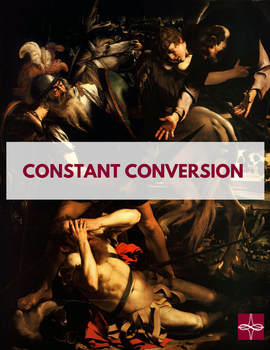 The story of St. Paul has always been one that has touched me to my very core. To think that someone who was persecuting the Church—who saw to it that the very first martyr, Stephen, was stoned to death—would eventually leave everything to follow God’s will for his life is truly extraordinary. But the story of St. Paul, although extraordinary, is not something beyond our reach. Some of us have experienced massive conversions in our lives—whether they involve entering the Church for the first time or returning to the sacraments after a time away. Some of us have had conversions of mind and heart when it comes to embracing what the Church teaches in regards to morality. Still others experience ongoing, undramatic conversion throughout their lives. Regardless of our individual experiences, the conversion of St. Paul can inspire us to encounter Christ in a deeper way that leaves us transformed. The Church does not celebrate the feast of the conversion of St. Paul merely for that moment of initial encounter and conversion. We celebrate it because of how it changed absolutely everything for Saul, now Paul. Paul met Christ personally; and this encounter guided his decisions and actions for the rest of his life. And so it must be with us! Shortly after Paul’s conversion on the road to Damascus, Acts 9:18 describes how after a conversation with Ananias, “things like scales fell from his eyes.” It was only after this that Paul was able to go and preach the good news of the Gospel—the good news that changed everything for him. Although we may not be knocked blind by a voice in the heavens, most of us do have scales on our eyes that prevent us from truly seeing and knowing Christ and spreading the Gospel. Whether we experience scales of sin, shame, bitterness, or inadequacy, we must remember that God desires constant conversion for us. Just as He so faithfully spoke to Paul in his conversion, He is inviting us to the same thing—the promise that a life turned toward Him will be better than anything our clouded eyes could imagine. This will manifest itself in our lives in any number of ways—through reconciliation in a relationship, returning to confession, or an increased disposition of mercy for those in our lives who need it. By allowing our lives to be constantly converted, we will be equipped, encouraged, and enabled to share the news that changed everything for Paul 2000 years ago and that continues to change everything for us now. Let us pray and ask the Lord for a deeper encounter with him. May he continually remove the scales from our eyes. St. Paul, pray for us! Questions for Reflection: Have you experienced a powerful moment of conversion or has your spiritual life been one of ongoing, gradual conversion? What might be some “scales” in your life that prevent you from living as a missionary disciple? A man named John was sent from God. He came for testimony, to testify to the light, so that all might believe through him. (John 1:6-8)
The first word that comes to mind upon reading this Gospel is humility. In response to questions from the priests and Levites, John explains that he baptizes not as Christ, Elijah, or the Prophet, but as “the voice of one crying out in the desert, ‘make straight the way of the Lord’.” John is so quick to point out this distinction, so quick to give credit where he feels credit is due. Reflecting back to my years of service as a Lasallian Volunteer and Good Shepherd Volunteer, I think I could have used a slice of this humble pie. How often did I consider myself “the light,” taking on the responsibility to serve, or save, the communities I entered? How often did I fail to see the parts of myself that needed saving, and that this saving work was never really mine to begin with? Thanks to time, perspective, and most of all, the grace of God and those I have encountered, I continue to be humbled - moved beyond my self-righteousness, and into a space of more authentic listening, learning, and loving. These moments, in all their discomfort and vulnerability, become my testimony; through the gift of growth, I can “testify to the light.” Focus on: COMMUNITY In this Gospel, the questions posed by John’s community invite him to name who he is and what he is about. Community often provides this challenge and gift - holding a mirror up to our past, present, and future and reflecting how all these complexities meld and meet the world. How do your communities help you own your truth? In community, how can we help each other “testify to the light” within? SERVICE SUGGESTION: Spend some time reflecting upon someone in your community who has helped you grow more into who you aspire to be. Write a note of appreciation, take them out to coffee, or find some unique way to affirm them and acknowledge the influence they have had. PRAYER: Our Power to Bless One Another by John O'Donohue (Excerpt from To Bless the Space Between Us) In the parched deserts of post-modernity a blessing can be like the discovery of a fresh well. It would be lovely if we could rediscover our power to bless one another. I believe each of us can bless. When a blessing is invoked, it changes the atmosphere. Some of the plenitude flows into our hearts from the invisible neighborhood of loving kindness. In the light and reverence of blessing, a person or situation becomes illuminated in a completely new way. In a dead wall a new window opens, in dense darkness a path starts to glimmer, and into a broken heart healing falls like morning dew. It is ironic that so often we continue to live like paupers though our inheritance of spirit is so vast. The quiet eternal that dwells in our souls is silent and subtle; in the activity of blessing it emerges to embrace and nurture us. Let us begin to learn how to bless one another. Whenever you give a blessing, a blessing returns to enfold you. *This post was published in the 2017 Advent Reflection Guide, a collaborative effort between the Catholic Volunteer Network and the Catholic Apostolate Center. Click here to view the full guide. Katie Delaney is a former Lasallian Volunteer and former Good Shepherd Volunteer. To learn more about faith-based service opportunities through the Catholic Volunteer Network, please click here. We have entered the season of Advent and a new liturgical year. Advent offers us an important time to watch, wait, and reflect on the coming of Jesus Christ and on our encounter with him. He is encountered in the mystery of the Incarnation, which we represent by Nativity scenes placed in our churches, chapels, and homes. We could limit ourselves to only looking at the beauty of the artistic scene and not move into deeper reflection on the fact that God, who is infinite love and mercy, sent his only begotten Son to save us.
Christ is also encountered in the Eucharist, most significantly during the celebration of the Mass. Pope Francis describes this coming of Jesus: “Mass is prayer; rather, it is prayer par excellence, the loftiest, the most sublime, and at the same time the most ‘concrete’. In fact, it is the loving encounter with God through his Word and the Body and Blood of Jesus. It is an encounter with the Lord.” (General Audience, November 15, 2017). And Christ will come again in all his glory at the end of time. We need to be prepared for this time not simply through passive waiting, but by active watching for the Lord and encountering him in our brothers and sisters who are most in need, especially the poor, the vulnerable, and the voiceless (Mt. 25:31-46). As baptized members of the Body of Christ, we are co-responsible for the mission that he left us until he comes again – for the salvation of souls – not only focusing on eternal life with God, but also on how we are collaborating with the Most Holy Trinity to build the Kingdom of God on this side of life. Pope Francis also reminds us of the connection of the Immaculate Conception to the salvific plan of God. “In the Immaculate Conception of Mary we are invited to recognize the dawn of the new world, transformed by the salvific work of the Father and of the Son and of the Holy Spirit. The dawn of the new creation brought about by divine mercy. For this reason, the Virgin Mary, never infected by sin and always full of God, is the mother of a new humanity. She is the mother of the recreated world.” (Homily for the Solemnity of the Immaculate Conception, 2015) We have not been conceived without sin, but we have been washed clean of Original Sin at Baptism (and all prior sin, if one was baptized as an adult). While we have all sinned since that time, our Baptism offers us a share in the mission of Jesus Christ as Priest, Prophet, and King. Though followers or disciples, he also sends us as apostles, or as missionary disciples, out into our challenging world to witness to him by what we say and do. That is why we are told at the end of each Mass to “Go”. We are sent on mission by Christ and the Church as joyful witnesses of God’s love and mercy. Our best example of how to be a missionary disciple of Jesus Christ is the Blessed Virgin Mary. She followed Jesus as his disciple unfailingly during her life and continues from her heavenly home as Queen of Apostles to invite us to encounter her Son, Jesus Christ, Our Savior and Lord. May the Charity of Christ urge us on! The Catholic Apostolate Center is a ministry of the Immaculate Conception Province of the Society of the Catholic Apostolate (Pallottine Fathers and Brothers). The Pallottines and the Center staff will remember you in special prayer on this Solemnity of the Immaculate Conception. The call to evangelize is at the heart of our Christian faith. We are evangelizers at our core; it makes up our very identity. And yet, if I were to ask most people sitting in the church pews at Mass if they are evangelists, they would probably shake their heads and identify themselves in other terms: vocation, occupation, role in the family, country of origin. A professor of mine in graduate school put it starkly when he said most of the laity are experiencing an “identity crisis.” We do not know, or have forgotten, who we are as members of the Body of Christ and what our role is within it. Today, Pope Francis echoes his predecessors in reminding the laity of their call to become missionary disciples. This is a call that originates from God Himself, with the Risen Christ saying to his beloved disciples before ascending to the Father, “Go and make disciples of all nations.” These words reverberate ever more powerfully for us today. Though the universal call to holiness and a greater emphasis on evangelization has roots in the papacy of Pope Paul VI and within the Second Vatican Council, Pope Francis calls the concept of sharing our encounter with Jesus Christ using the means available to us “missionary discipleship.” It is a profound concept that Pope Francis assures us is relatively simple. “The new evangelization calls for personal involvement on the part of each of the baptized,” he writes in Evangelii Gaudium. “Every Christian is challenged, here and now, to be actively engaged in evangelization; indeed, anyone who has truly experienced God’s saving love does not need much time or lengthy training to go out and proclaim that love.” Once we have encountered Jesus Christ and His merciful love, we are called to bring that encounter to others, therefore playing a unique role in salvation history. Several of my colleagues from the Catholic Apostolate Center and I were honored to discuss “The Call to Missionary Discipleship” at the Catechetical Day hosted by the Archdiocese of Washington in late October. We discussed that, as baptized Christians, we have been given the grace of Jesus Christ in order to respond to the both daunting and exhilarating call to “go out to all the nations.” This understanding of evangelization subsists not only on our personal encounter with God’s transforming love, but also on our proclamation of it. It is not enough to encounter Jesus Christ for ourselves. Like the woman at the well, we must go forth telling anyone who will listen, “Come see a man who told me everything I have done.” Below are five practical tips we came up with for living out the call to be a missionary disciple. What are we missing? Feel free to add to our list by commenting on our post below! 1. Collaboration If we are to be missionary disciples, we must be people of collaboration. This does not mean that we attend endless meetings, join committees, or fill every moment of our schedule. We propose collaboration from the beginning, which means a willingness to begin an endeavor communally with others—recognizing the valuable role each person has. Collaboration must happen among, for, and with those in our parishes and organizations. It requires openness to the promptings of the Holy Spirit, humility, dialogue, and flexibility. How can you learn from others in your community, parish, family, workplace, or neighborhood? How might God use the gifts and talents of a diverse group of people to strengthen His kingdom on earth? 2. Technology As followers of Jesus Christ, we are called to use the tools of this present age in order to re-present the Gospel to our world in a way that is innovative and re-invigorated. A major tool today that can be used to spread the Gospel message is technology, especially the internet. We can share digital content that is valuable, such as Scripture, the Catechism, and Papal and Conciliar documents, in order to become better informed about our faith. Technology can also create a new type of community, enabling us to connect with others and share information in a way that is cost-effective and not limited to physical proximity. What are some ways you can use technology to spread the Gospel and help build a civilization of love? 3. Community/Parish Life We do not exist in isolation. As Christians, our work of evangelization will not bear much fruit if we do it alone. Our community, especially our parish, strengthens us and equips us to go outside our church walls in order to evangelize. It is within the parish that we receive the sacraments, especially the Eucharist, which gives us the grace of Christ Himself. In order to be effective as missionary disciples, we are called to have a vibrant sacramental life strengthened by our communities. How does your parish community strengthen you for your mission of discipleship? 4. Relationships Relationships outside of the parish are also crucial to missionary discipleship. As mentioned above, we do not exist in isolation. Do we have a mentor or spiritual guide helping us to grow in our faith life? Do we have relationships or friendships that hold us accountable and push us to become better witnesses of faith? By developing faith-filled relationships and surrounding ourselves with mentors and guides, we ensure that we continue to grow in our role as missionary disciples. 5. Prayer Prayer is crucial not only to a life of missionary discipleship, but to the Christian life overall. Prayer is the foundation for our relationship with God, inviting us to get to know ourselves more deeply through his gaze of love and mercy and helping us to better understand our specific mission in building up the Body of Christ. Prayer can, and should be, both personal and communal. God speaks in the silence of our hearts, as well as through others. Are we carving out time in silence to converse with God and hear the promptings of the Holy Spirit? Do we read Scripture, pray the Rosary, journal, sing hymns, or reflect? By having an active prayer life, we will be better equipped to become fruitful missionary disciples. The call to missionary discipleship is both daunting and exciting, and we can live it out at any time. As Pope Francis wrote in Evangelii Gaudium, “Being a disciple means being constantly ready to bring the love of Jesus to others, and this can happen unexpectedly and in any place: on the street, in a city square, during work, on a journey.” Above, I’ve listed a few tips to fulfilling our call to become missionary disciples. What would you add to the list? To learn what the Catholic Apostolate Center is doing to form missionary disciples, click here to learn about Apostles on Mission. "The questions lurking in human hearts and the real challenges of life can make us feel bewildered, inadequate and hopeless. The Christian mission might appear to be mere utopian illusion or at least something beyond our reach. Yet if we contemplate the risen Jesus walking alongside the disciples of Emmaus (cf. Lk 24:13-15), we can be filled with new confidence" - Pope Francis, Message for 2017 World Day of Prayer for Vocations.
Discerning one's vocation in life is not easy. It is a challenge, particularly if one thinks one is alone. But, we as baptized realize that we are not alone. Jesus Christ is walking with us in the same way in which he walked with the disciples on the road to Emmaus. He accompanies us through the community of faith, the Church. We encounter Christ and are accompanied on our journey in our participation in the Sacraments, through the teachings of our Faith, by the Church's ministers, and in communion with the People of God. In our personal prayer, he is present as well, but we need to quiet ourselves and hear the "tiny whispering sound" as did the Prophet Elijah in the cave ( 1 Kings 19:12). As St. Vincent Pallotti taught in the nineteenth century, so does the Second Vatican Council and the Popes that followed, we are called to be apostles or missionary disciples. We have an apostolic vocation in life. Even those who are contemplative pray not for themselves, but for the whole Church. Whatever our particular vocation - marriage, Consecrated Life, or priesthood - we are all sent by God on mission to our brothers and sisters, witnessing Christ by what we say and do. We are called to accompany others in prayer and action in encountering Christ. Over the last years, I have had the privilege of accompanying many young men and women as they discerned their vocation in life. As each would make her or his choice after a long questioning and search that was sometimes bewildering, a sense of profound peace would come upon them. This is the peace that comes from Christ in and through the Holy Spirit. It is the peace that he has left us as his missionary disciples so that we may go forth in his name! May the Charity of Christ urge us on! “Practice patience toward everyone and especially toward yourself. Never be disturbed because of your imperfections but always get up bravely after a fall.” -St. Francis de Sales A few years ago, I had the opportunity to travel to Rome, Italy. To this day, the pilgrimage showers graces into my life. One day on the pilgrimage, we went to the Basilica of Sant’Agostino and prayed in front of a painting by Caravaggio called the Madonna di Loreto. In it, Caravaggio paints dirty, unkempt pilgrims kneeling in front of Our Lady and Jesus. Two years later, the image is still embedded in my mind. The Rome pilgrimage seemed to be a small microcosm of my life. My struggles and weaknesses were the same struggles and weaknesses I encountered back at home and work, yet in Rome they had a different weight. My frustrations with my weaknesses were still there, but it wasn’t until I was looking up at that painting that I realized that the pilgrimage was a process. My sin and weakness, my toil, my striving for sanctity—all of this was a process. The walking, the waiting, the impatience, the stumbling, the praying, the joy, the suffering—all was part of my pilgrimage and contributed to the end or goal: sanctity. I found myself praying for patience, and was informed by a fellow pilgrim that the root word of patience is “to suffer.” I found this definition fitting for the journey. Today, we are all on a pilgrimage aimed toward Heaven. In my walk, I find myself quickly frustrated at my stumbles, my repeated sin (that for some reason I just cannot get over), my judgment, my lack of love, and the list could go on. This frustration with the pace of my walk on the pilgrimage to salvation is not helpful for the walk—it is inhibiting. My walk requires patience with others and with myself. Looking at that painting by Caravaggio, I realized that we are the pilgrims—dirty from the journey, imperfect, on our knees asking Our Lady for the gift of her Son. He receives all of us as we are on this walk, and patience in the process will lend to an easier recovery after a stumble, a lighter load to carry. Let us grant ourselves patience throughout our pilgrimage to our end, Jesus Christ. As St. Teresa of Calcutta reminds us, “We have only today. Let us begin.” Preparing for Hurricane Irma has given me a fresh perspective on what matters most. With each alert, evacuation notice, and email telling me that work would be canceled for “x” amount of days, my panic level rose. The uncertainty of the storm’s path falling on my city and then my family’s city kept us all in constant contact reviewing our emergency plans. Social media messages from friend to friend with notes of encouragement and “hurricane hacks” brought us all closer together around the state. Thankfully, I am located in north central Florida, where Hurricane Irma caused less damage than its two landfalls near Naples and The Keys. Prepping my house and selecting the most important items to protect for survival is very humbling. While packing, I thought of my fellow Floridians who evacuated south Florida not knowing if they will have a home to come back to. I thought of those in the Caribbean who received the brunt of Hurricane Irma’s force. I thought of the victims in Texas who battled Hurricane Harvey and continue to cope with its aftermath. These natural disasters remind us of the sanctity of life, what is most important. With the hurricane covering the entire state of Florida, I thought of how small I am—especially in comparison to what God can accomplish. During times of natural disasters, reliance and trust in him increases. One of my neighbors reminded me of the story in Matthew 8:23-27, when Jesus calmed the storm at sea. Jesus told his disciples, “‘Why are you terrified, O you of little faith?’ Then he got up, rebuked the winds and the sea, and there was great calm.” My neighbor told me, “He did it once, and he can do it again!” Her faith was inspiring to me and instantly calmed my nerves. When someone asks, “Where is God in this storm? Why did he create this?” my answer is that God is in those who help others and respond with service and compassion during times of trial and suffering. 1 Corinthians 12 tells us that we are Christ’s body and form individual parts of it. We are the hands and feet of Christ in the world. We may not see the ways God is helping at first because these ways may not necessarily be our ways. I truly believe acts of kindness, such as neighbors checking in on one another and helping one another prepare their homes and families, provide hope during times of fear or suffering. The selfless love of fellow citizens encourages each of us to do what we can for others, in this case, those affected by these recent storms. There are students, faculty, and staff from the University of Florida, where I work, who are ready to jump into action after the storm passes to help others by donating food and clothing, assisting displaced pets, and more. We grieve with those who hurt and find ways to help alleviate their suffering. Rather than filling my thoughts with why this storm has happened, I instead thank God for the blessings he has provided my family and me. Ultimately, God does not cause the storm (or evil), he simply permits the natural way of the world, just as he does with the free will of human beings. Romans 8:28 tells us that God is always working for our good or working to bring about good and turn even a bad situation into a blessing. I am comforted by this thought. During this time of hardship for many in our country, I pray that we may come together and serve one another in order to bring good out of suffering. May we continue to be the hands and feet of Christ to our brothers and sisters. "Don't look for big things. Just do small things with great love." Many of us are familiar with these words from Mother Teresa, a reminder that we will be measured against the depth of our love, not the number of great deeds we’ve done. It’s also become a personal mantra whenever I think about the idea of missionary discipleship. “We become missionary disciples when we take our encounter with Jesus Christ out into the world,” the United States Bishops stated in their document Living as Missionary Disciples. They continue, “As a Church, we are called to be missionary disciples who know and live the faith and confidently share the Gospel.” My part-time work with the Catholic Apostolate Center keeps me plugged into the ministry world, but whenever I step out of the “Catholic bubble,” evangelization gets difficult fast. It’s easy to talk about missionary discipleship in theoretical terms among engaged Catholics. The call to actually be a missionary disciple, however, becomes a challenge when I’m the only engaged Catholic in the room. During my day job as a civil engineer, I encounter coworkers and clients from all kinds of backgrounds. The opportunity to evangelize is enormous, but where do I start? If we’re all called, by virtue of our baptism, to “go make disciples of all nations,” then aren’t I supposed to be evangelizing everyone I meet? How am I supposed to do that without making people think I’m a kooky religious fanatic? Being Catholic is at the core of who I am—but, to many, that does sound kind of kooky! So how do I do this missionary discipleship thing? How do I evangelize without going too deep too fast? I once heard someone compare evangelization to trying to teach particle physics: You don’t just start with the Higgs boson and expect people to get it. You start with the basics. The same goes for the mission of evangelizing the world. Start with the basics. Or, as Mother Teresa said, “Just do small things with great love.” I don’t have to pass out copies of Magnificat or start a lunchtime Bible study in order to be a missionary disciple. All it takes is planting a seed here and there: keeping an icon of Our Lady of Perpetual Help on my desk, silently offering a prayer before lunch (when I don’t forget!), even simply treating my coworkers with kindness and respect. All of these small things add up when done with great love. People notice and they wonder: “Why?” I vividly remember an encounter I once had in a Chick-fil-A. The cashier, friendly as they always are, randomly asked what church I went to. I told him, wondering aloud what made him ask. Without missing a beat, he said, “Because your light shines.” Ironically, I was in the midst of a rough patch and had taken the semester off of school. In spite of my own trials, all it took was treating the guy like a person in order to elicit that response. We’re so tempted to think that big accomplishments and programs are all that command people’s attention, but it’s really the opposite. The big stuff fades from our memories faster than a sensational Internet meme or viral cat video. But the little things people do, the kindness and love with which we regard one another, that’s what’s remembered. And that’s what opens people’s hearts to God. Missionary discipleship isn’t rocket science, or even particle physics. It’s about doing small things with great love. Question for Reflection: What are some small things you can do to spread the love of God wherever you go? For more information on how you can be a Missionary Disciple, visit the Catholic Apostolate Center’s resource page here. Click here to read Living as Missionary Disciples: A Resource for Evangelization. |
Details
Archives
July 2024
Categories
All
|
About |
Media |
© COPYRIGHT 2024 | ALL RIGHTS RESERVED


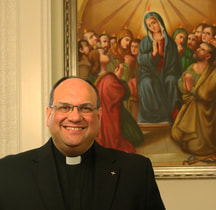
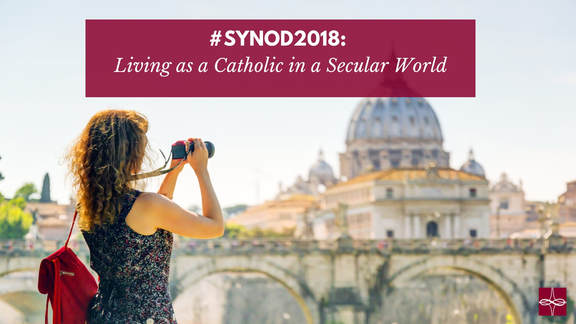





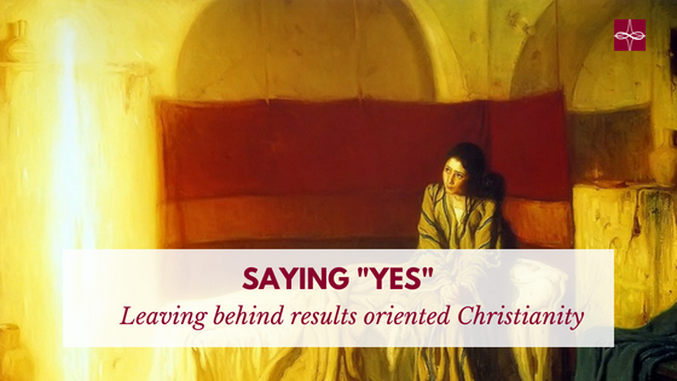

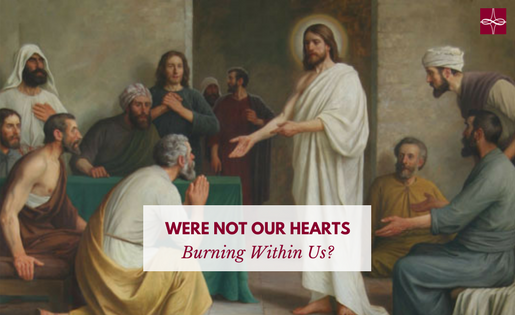

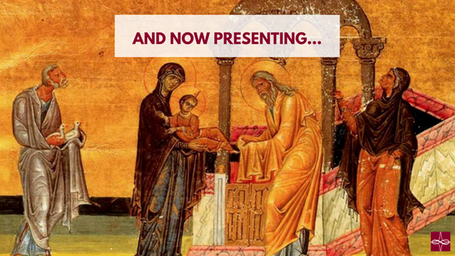



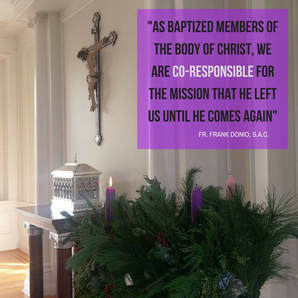
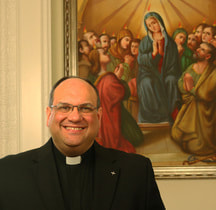



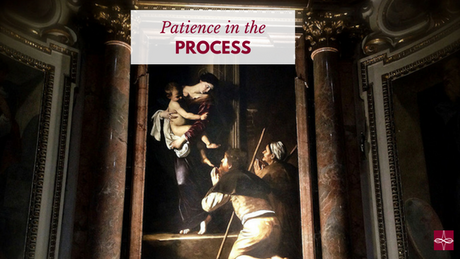

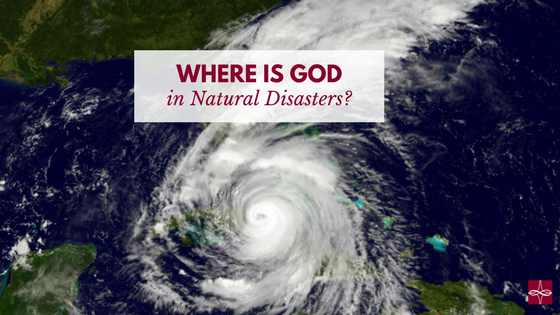

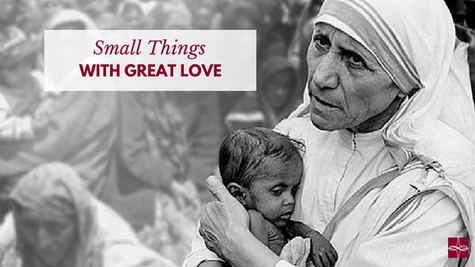

 RSS Feed
RSS Feed